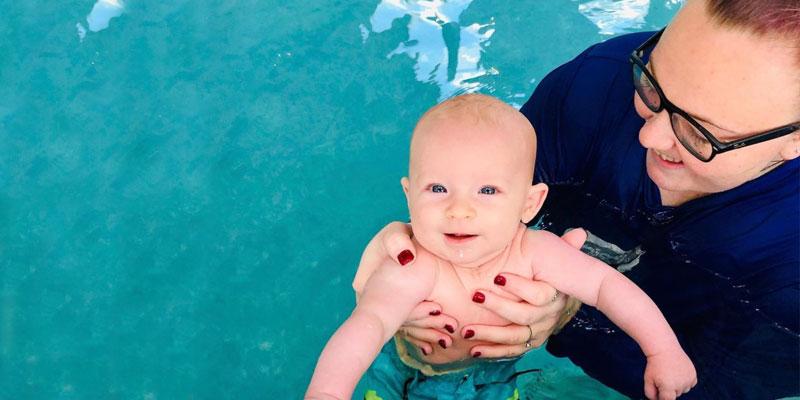When your newborn is first home from the hospital, and bath time is in the kitchen sink, you may be thinking about whether your baby will grow up to be the next Michael Phelps or Katie Grimes—two notable U.S. Olympic Team swimmers. You may also be thinking about when your child should start swim lessons.
What is the Best Age to Enroll a Baby in a Water Babies Class?
Clearly, all children are unique. They achieve skills and reach developmental milestones at different times. So, the question may not simply be when to start swim lessons for your child. Perhaps a better question for a parent to ask is, “What can I do now to make sure my child grows up with a healthy, natural, and safe attitude toward the water?”
The answer is, make plans now for your child to enter a Water Babies program when they are three months old. The early exposure to swim-related activities will build confidence in your child, and make your child feel comfortable and at home in the water. You will be giving them a gift to last a lifetime.
Participation in a Water Babies program means that your child will be well prepared and excited about taking swim lessons when they are ready.
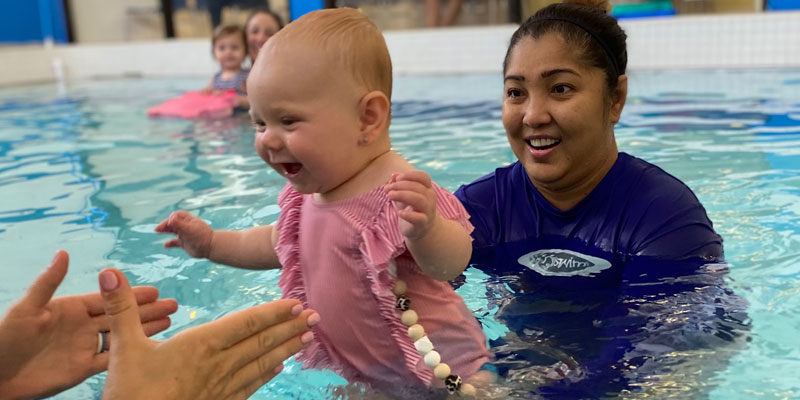
How Do Early Swim Programs Help Babies and Toddlers?
The sooner babies are exposed to water, the easier they adapt to it.
Babies of three months are too young to learn actual swim strokes and breathing technique. But it’s just the right age to start being exposed to the joy that comes with water activities. They can also learn to feel at home and happy in the water.
It isn’t uncommon for some toddles between the ages of one and two years to develop a fear of water. This makes bath time challenging for the parents and scary for the toddler. An early and healthy introduction to water in a positive and supportive environment may keep this fear from developing.
A Study About Water Babies and Cognitive Development
A study shows that babies who were taught to swim between the ages of 4 to 7 months had better balance and were better at grasping at objects than non-swimmers. The research from the Norwegian University of Science and Technology showed that this difference still existed at age 5.
At our Njswim Water Babies program, being exposed to the water at an early age improves:
- Cognitive development through the stimulation of neurological connections in the brain
- Physical development through a better developed sense of balance and muscular movements
- Social development by meeting babies of similar ages in the swimming pool
Children who learn skills in Water Babies classes also are less timid and more independent.
Most babies have fun in the water, so early swim lessons become an enjoyable parent-child bonding activity.
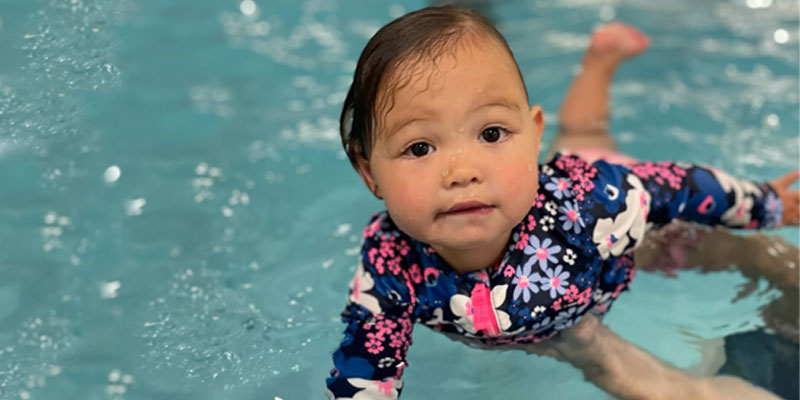
Water Babies is for Ages Three Months and Up
Our Njswim Water Babies program is for all babies aged 3 to 15 months.
Our Water Babies program helps babies and parents build confidence in the water. We also teach parents about water safety.
Parents must stay with their baby during class. We want both babies and parents to feel comfortable and secure in the pool.
The skin-to-skin contact babies and parents have in the pool promotes a healthy bonding experience for both.
Our Swim Program for Babies program helps them to:
- Practice proper age-appropriate aquatic breathing skills
- Discover their balance and buoyancy in the water
- Practice movement of early swimming-related skills
If your baby is younger than three months, they can still learn to enjoy water by having a fun bath time at home. Of course, parents or caregivers must always supervise bath time; an unsupervised child can quickly drown in less than two inches of water.
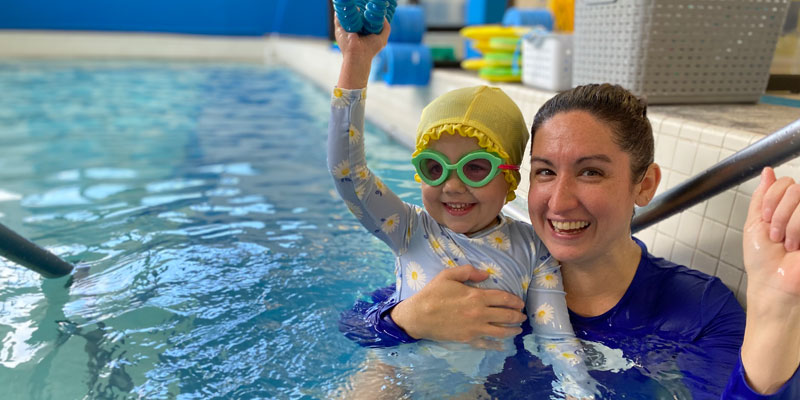
What’s Next for Older Njswim Water Babies?
As babies get older, feel more secure, and get used to the water, they move up to a more advanced program.
Between 16-30 months, babies learn breath control and coordination. There is less need for a parent to help as the baby becomes more and more independent in the water.
The child learns:
- Voluntary breath control and the practice of proper aquatic breathing skills
- Awareness of natural buoyancy using floating and propulsion exercises
- How to use their newly gained motor skills in the water
Learning these skills at an early age will give your baby a better connection with the water. It will eventually help your child learn a more efficient and natural way to swim.
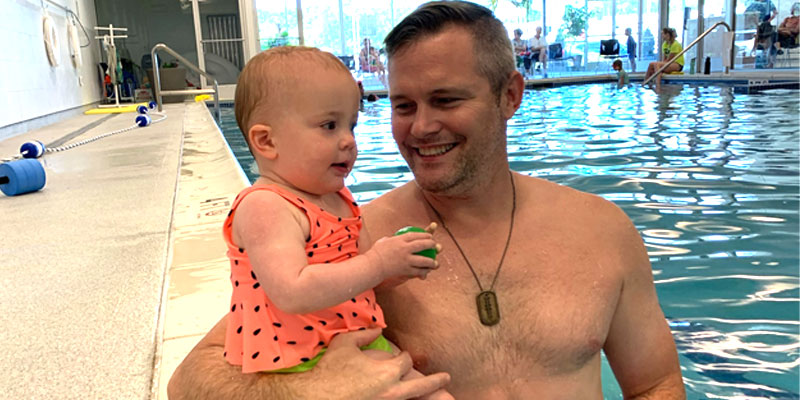
Your Child Can Love the Water
When you constantly expose young children to swimming, they grow up feeling natural and relaxed in the water.
This will help your child develop excellent swimming skills. And it will help them build stronger muscles and bones, strengthen their heart and lungs, and enhance their emotional well-being.
As your child grows, having excellent swimming skills will prepare them in the event of a water-based emergency.
At Njswim, we want your child to achieve balance and oneness with the water—not only for enjoyment, but for safety as well. This Zen mindset is easiest to achieve when babies are properly and safely introduced to water at a very early age.

